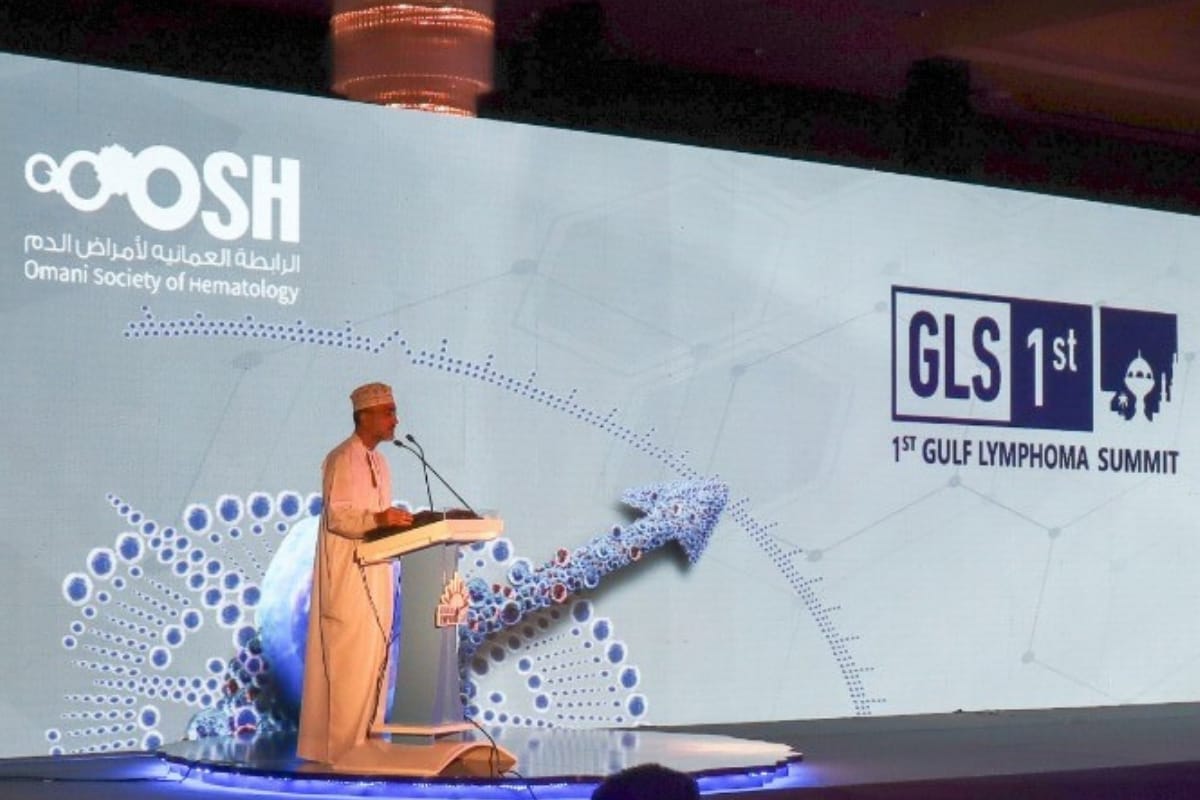Health Care
Experts urge collaboration to advance lymphoma management across GCC

Over 100 prominent hematologists, medical experts and researchers came together at the 1st Gulf Lymphoma Summit, supported by AstraZeneca, in the Sultanate of Oman.
The event, which was hosted by the Omani Society of Hematology, and endorsed by Emirates Society of hematology focused on shedding light around the strategies that need to be developed in advancing lymphoma care in general and a deeper understanding of the impact of non-Hodgkin lymphoma across the GCC.
Throughout the region, non-Hodgkin’s lymphoma ranked in the top 5 cancers in all GCC countries except in Bahrain and amongst women in Oman. It is the 2nd commonest in Oman and Kuwait among males. In females it ranked within the top 5 malignancies in all the GCC countries except Bahrain and Oman. The incidence in GCC countries is between the low European – American and high African rates.
In 2018, there have been 229 new cases of non-Hodgkin’s Lymphoma in males and females across Oman, representing a total of 6.9% prevalence amongst other forms of cancer. Non-Hodgkin Lymphoma ranks 3rd amongst all malignancies in Oman.
Dr. Abdulhakim Al Rawas, President at the Oman Society of Hematology said, “Blood cancers constitute a group of diseases that affect the production and function of blood cells and has detrimental impact on survival, quality of life of patients and healthcare systems. At the Oman Society of Hematology, our primary objective is to address the unmet medical needs of people living with similar conditions in the Sultanate through collaborative work with our partners to expand access to specialized treatment modules to deliver optimal patient care.

In a recent study issued by the World Health Organization, non-Hodgkin lymphoma accounted for the most frequent type of cancer in men (18 per cent) in the age group of 15-34 years, out of an estimated 555,318 new cancer cases. Non-Hodgkin lymphoma is amongst the most common cancers in Oman.
There has been significant progress in the diagnosis and treatment of these conditions over the last few years in Oman. Our society strives to keep our members and other colleagues up to date with the latest developments in the field with the aim of providing the best available management to our patients and the community.

In addition, Dr Rania Seliem at the Emirates Society of Hematology also noted, “The Gulf Lymphoma Summit is a great platform to exchange knowledge while also reaching a consensus amongst regional health providers to drive awareness strategies focused on non-Hodgkin Lymphoma. There is real need to address the seriousness of non-Hodgkin Lymphoma across the GCC, and our aim is to provide scientific support – long with the other hematology societies in the region – to these important meetings to create regional synergies in how we manage the disease.
Ismail Shehada, AstraZeneca’s Country president GCC also said, “Patients remain at the core of everything we do. That is why, at AstraZeneca, we are passionate creating partnerships with the public and private sector to focus on supporting patients’ unmet needs. We encourage the collaboration hematologists and the wider scientific community to better understand new ways of managing non-Hodgkin Lymphoma as well as other cancers in the region.
“The Gulf Lymphoma Summit mirrors our commitment of being an integral part of the fabric of the region, and addressing healthcare priorities. We continue to work towards providing practical solutions to advance the care of patients, which we’re able to do now more than ever before, added Shehadeh.
“Our primary objective is to address the unmet medical needs of people living with cancer and rare diseases. This means that we go beyond simply delivering medicines, to expanding access to them in a part of the world that presents numerous challenges. The Middle East region is diverse, featuring countries that struggle with cancer care and therapies. Despite the GCC also being part of the region, it benefits from having cutting edge therapies and comprehensive cancer care, allowing it to be at the forefront of cancer treatment in the region.”
-

 Banking & Finance2 months ago
Banking & Finance2 months agoOman Oil Marketing Company Concludes Its Annual Health, Safety, Environment, and Quality Week, Reaffirming People and Safety as a Top Priority
-

 News2 months ago
News2 months agoJamal Ahmed Al Harthy Honoured as ‘Pioneer in Youth Empowerment through Education and Sport’ at CSR Summit & Awards 2025
-

 Economy2 months ago
Economy2 months agoPrime Minister of India Narendra Modi to Visit the Sultanate of Oman on 17-18 December
-

 Economy2 months ago
Economy2 months agoOman’s Net Wealth Reaches $300 Billion in 2024, Poised for Steady Growth
-

 OER Magazines2 months ago
OER Magazines2 months agoOER, December 2025
-

 News1 month ago
News1 month agoAI Security Conference 2025 Hosted by Securado Highlights the Changing Cybersecurity Landscape
-

 Insurance1 month ago
Insurance1 month agoSupporting Community Wellness: Liva Insurance Sponsors Muscat Marathon 2026 with Free Health Checkups
-

 Interviews3 weeks ago
Interviews3 weeks agoEXCLUSIVE INTERVIEW: TLS Rebranding Marks Strategic Leap Toward Innovation, Sustainability & Growth































You must be logged in to post a comment Login